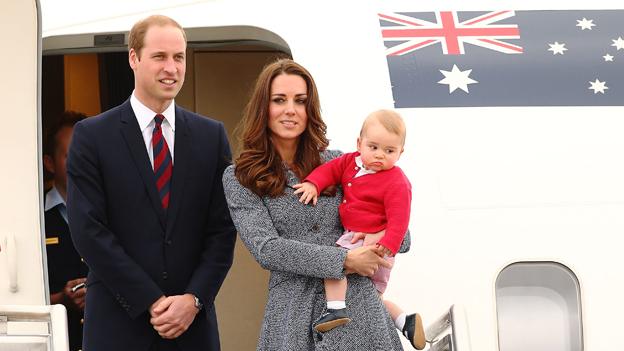Royal baby: The two-year gap - is it ideal?
- Published

The Duchess of Cambridge is expected to give birth in the spring of 2015. She gave birth to her first child, Prince George, on 22 July 2013, meaning there will be a gap of about 20 months between the two children, give or take a few weeks.
Now Magazine suggested last summer, external that Kate might want "back-to-back babies". The idea being that you can have your children in a single batch lasting just a few years and then move on.
Women starting a family in their 30s might not have the luxury of spacing their children out. For the mother's health, two to three years is "probably perfect" says Sarah Jarvis, a GP who regularly appears on the BBC's Jeremy Vine Show. A woman goes through a lot giving birth, especially if they breastfeed afterwards. In nutrition terms, it takes a year to recover, says Jarvis. They will need to have time to rebuild their pelvic floor, she continues. Two years is good because it gives a bit of leeway. And anything over three years may be too long as it can cause sibling rivalry, Jarvis suggests.
Some parents talk of two years as being ideal. If you plan ahead, it means siblings will be approaching A-levels and GCSEs at the same time - allowing the family to have an intensive "exam" year, followed by a year off.
There are pros and cons with any gap, says Justine Roberts, who co-founded Mumsnet. She once read of research suggesting that the ideal age gap for developing a child's intelligence is 11 years as the older child becomes like a third parent. But that's not practical or desirable for many.
At the other extreme, having children one year or less apart is likely to be a huge strain. The advantage of having babies close together is that your children will play together and become close, developing shared interests, Roberts suggests. But having a new baby while you have a toddler is hard work. "It depends how your set up is, how drained you'll be."
Luckily for the Duchess of Cambridge, childcare should not be a problem.
Subscribe to the BBC News Magazine's email newsletter to get articles sent to your inbox.